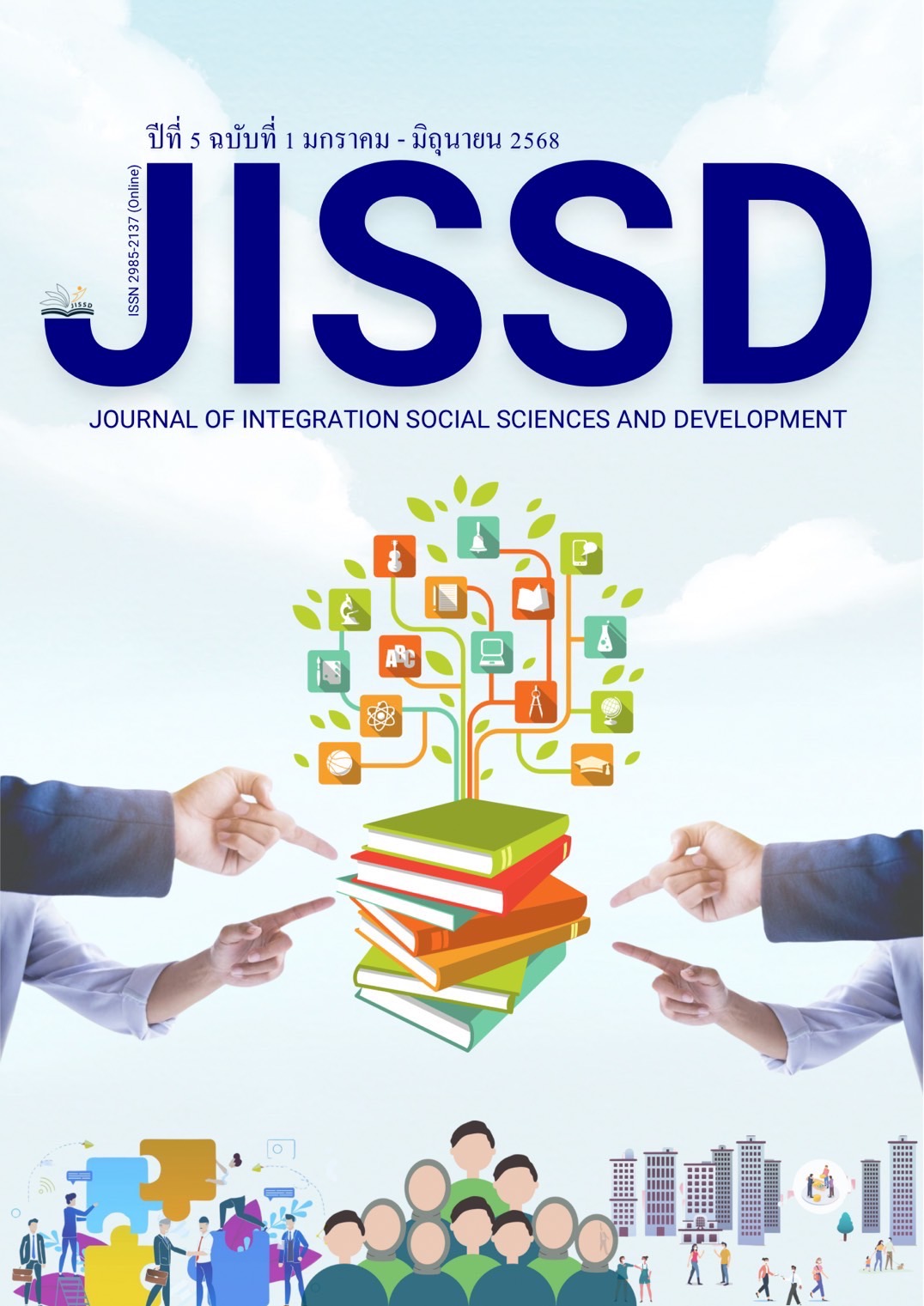The Development of Mathematical Literacy on Decimals Using Simulated Situations Integrated with Gamification for Grade 7 Students
Main Article Content
Abstract
This research aimed to develop mathematical literacy on the topic of decimals using simulation-based learning combined with the gamification concept for Grade 7 students. The sample group consisted of 22 Grade 7 students from a school in Kalasin Province during the first semester of the 2024 academic year. The sample was selected using cluster random sampling, with classrooms as the sampling unit. The research instruments included eight lesson plans incorporating simulation-based learning and gamification, as well as a mathematical literacy test on decimals. The research followed an action research design, consisting of two action cycles. The first cycle covered lesson plans 1 to 4, while the second cycle covered lesson plans 5 to 8. Each cycle included a five-item subjective test assessing students' mathematical literacy on decimals. Data analysis was conducted using statistical methods, including mean, percentage, and standard deviation. The findings revealed that in the first cycle, students achieved an average score of 68.94%, whereas in the second cycle, their average score increased to 83.38%. This demonstrates that students’ mathematical literacy on decimals improved significantly when engaged in learning activities incorporating simulated scenarios and gamification. Moreover, the students' average mathematical literacy scores in the second cycle met the "very good" quality standard, with statistical significance at the 0.50 level.
Article Details
References
กระทรวงศึกษาธิการ. (2560). ตัวชี้วัดและสาระการเรียนรู้แกนกลาง กลุ่มสาระการเรียนรู้คณิตศาสตร์ วิทยาศาสตร์และภูมิศาสตร์ในกลุ่มสาระการเรียนรู้สังคมศึกษาศาสนาและวัฒนธรรม (ฉบับปรับปรุง พ.ศ. 2560 ) ตามหลักสูตรแกนกลางการศึกษาขั้นพื้นฐานพุทธศักราช 2551. กรุงเทพฯ : โรงพิมพ์ชุมนุมหกรณ์ การเกษตรแห่งประเทศไทย.
สำนักงานเลขาธิการสภาการศึกษา. (2561). รายงานประจำปี 2561 สำนักงานสภาการศึกษา. กระทรวงศึกษาธิการ.
กฤษณพงศ์ เลิศบำรุงชัย. (2560). เกมมิฟิเคชัน (Gamification) โลกแห่งการเรียนรู้ที่ขับเคลื่อนด้วยเกม. สืบค้นจากhttp://touchpoint.in.th/gamification/
ทิศนา แขมมณี. (2555). ศาสตร์การสอน : องค์ความรู้เพื่อการจัดกระบวนการเรียนรู้ที่มีประสิทธิภาพ. กรุงเทพฯ : จุฬาลงกรณ์มหาวิทยาลัย.
ราตรี ยะคำ. (2563). การวิจัยปฏิบัติการเพื่อพัฒนาสมรรถนะการอธิบายปรากฏการณ์ในเชิงวิทยาศาสตร์ ของนักเรียนชั้นมัธยมศึกษาปีที่ 5 ด้วยการจัดการเรียนรู้โดยใช้แบบจำลองเป็นฐาน เรื่อง เชื้อเพลิงซากดึกบรรพ์ และผลิตภัณฑ์(วิทยานิพนธ์ปริญญามหาบัณฑิต). พิษณุโลก: มหาวิทยาลัยนเรศวร.
สถาบันทดสอบทางการศึกษาแห่งชาติ (องค์การมหาชน). (2564). รายงานผลการทดสอบ ทางการศึกษาระดับชาติขั้นพื้นฐาน. (ออนไลน์). แหล่งที่มา : http://www.niets.or.th/th/.
สถาบันส่งเสริมการสอนวิทยาศาสตร์และเทคโนโลยี (สสวท.). (2566). ผลการประเมิน PISA 2022 การอ่าน คณิตศาสตร์ และวิทยาศาสตร์. กรุงเทพฯ : สถาบันส่งเสริมการสอนวิทยาศาสตร์และเทคโนโลยี.
สำนักงานเลขาธิการสภาการศึกษา. (2561) ร่าง มาตรฐานการศึกษาของชาติ พ.ศ. .... กรุงเทพฯ. สำนักงานเลขาธิการสภาการศึกษา.
Kalogiannakis, M., Papadakis, S., Zourmpakis, A. (2021). Gamification in Science Education. A Systematic Review of the Literature. MDPI Archives.
S.E. Bahji, Y. Lefdaoui and J. El Alami. (2012). Enhancing Motivation and Engagement: A Top-Down Approach for the Design of a Learning Experience According to the S2P-LMMohammed V Agdal University. Rabat. Morocco.
Simões, J., Redondo, R. D., & Vilas, A. F. (2013). A social gamification framework for a K-6 learning platform. Computers in Human Behavior.


